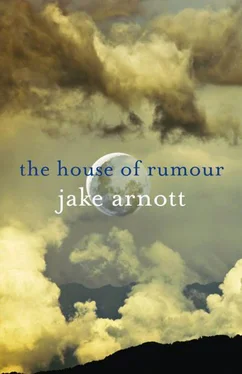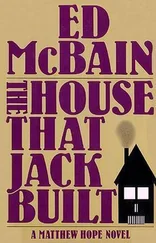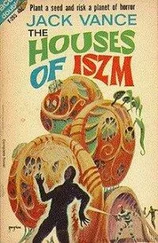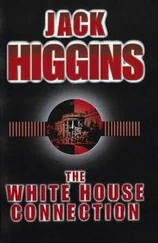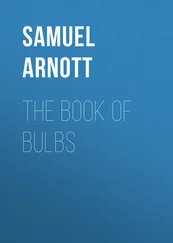The war was being fought in his head. There could be times of lucidity: the great triumphs of Operation Barbarossa. Then anxiety and depression: a winter that froze out the advance on Moscow, the shocking Russian counter-attack. The Japanese dragged the Americans into the fray and all that his mission had been intended to prevent came to pass. This was now a global war with Germany caught in the maw of its two hemispheres: an immense economic and industrial power to the west; a barbaric vastness of space, people and resources to the east. This ran contrary to the great Weltanschauung he had learnt from Professor Haushofer. And now a world-view was compressed into confinement, occupying the prison of his consciousness, the soul of his tortured body. The great destructive forces that were ranged across oceans and continents battled in his brain for meaning.
It was the Jews who were behind it all, of course. He knew that clearly, though he had to be careful what he said. They would be listening, after all. When the question came up he would refer to the Madagascar Plan. All the Jews in Europe could be settled on that large island to the east of Africa. It was under French colonial control; all it needed was for the British fleet to collaborate in the massive immigration to this Gross-Getto . There was documentation of this proposal in the Foreign Ministry and the German Admiralty, though he knew from his conversations with Rosenberg on the day of his flight that the Reich had abandoned the idea. The war in the East was now a matter of extermination. But he could always hide behind the fanciful notion that if his peace plan had worked, Madagascar could have been an option.
Manic episodes punctuated his growing depression. The success of the Africa Korps in the Western Desert; the Sixth Army sweeping through the Caucasus; fanfares on the radio as Berlin announced another U-boat victory. But all the time he was struggling to outwit those around him.
When all the good news from the outside world began to peter out he retreated into a mental oblivion. He told the doctors who examined him that a fog had descended, obliterating past events, people, ideas. He claimed to have forgotten his childhood in Egypt, his schooldays in Germany, his service in the Great War, the leading role he had played in the early years of the party. He could no longer recall the names of visitors or sometimes even the orderlies and officers who guarded him.
He reluctantly agreed to drug therapy, feeling that this might prepare him for greater tests that lay ahead. They were desperate to prove whether or not his amnesia was real. They injected him with a truth serum and conducted an interrogation. It took all his will to remain conscious while miming unconsciousness, to maintain his antic disposition. But as he passed this stage of inquisition he knew that one day a greater trial would come. There was already much talk about war crimes and tribunals. In the meantime he prepared his own judgement on a mad world.
One morning in February 1945 he woke early and called for a doctor, announcing to him that his memory had been restored and that he had something important to tell the world. He had composed a list of all the people who had been hypnotised by the Jews and he wanted it forwarded to Churchill. Churchill, of course, was named: hypnotism had changed him from anti-Bolshevik to pro-Soviet. The Jews, Hess explained, had a secret drug that could put people in a trance during which they would act in an abnormal way. The king of Italy, von Stauffenberg and the others who had plotted to kill the Führer, General von Paulus, Anthony Eden, the Bulgarian government — the catalogue went on. The doctor remarked that even the name Rudolf Hess appeared on the list. Oh yes, Hess replied; once at a state banquet in Italy he had been very rude to his hosts and the only explanation he had for his behaviour was that he must have been under the influence of this Jewish drug.
That night he took a bread-knife from the kitchen. He dressed in his Luftwaffe uniform, leaving the tunic open. He stabbed himself in the chest. He thought that he had aimed for the heart but when they came for him they found the wound to be quite shallow and wide of the mark.
The Russians had swept through Poland and were now inside Germany. The British and the Americans were ready to cross the Rhine. And the bombing of the cities became ever more intense: now Dresden had been incinerated in a firestorm. The air war he had dreaded. He had flown for peace, to end this battle in the heavens.
Newspapers carried haunting photographs, terrible accounts of atrocities as the advancing Allies entered the concentration camps. Fearful apparitions of a horror he refused to face. This was the dementia of history, he decided. He would wilfully forget such things. So instead he concentrated on composing an account of his own captivity, noting that for four years he had been guarded by people with a mental condition caused by a secret chemical hitherto unknown to the world.
When out walking in the grounds he found a small key, for a desk drawer or a cabinet perhaps. He kept it as a talisman. Berlin was besieged; he was surrounded on all sides now. He retreated further within.
He developed a ritual: dropping the key on a book or his pile of papers and watching where it landed. Divination of some obscure miracle that might save him. He had to divert his mind from the constant reports of an impending German surrender. He must not give in. He continued to write his statement.
He was adamant that he must not allow them to see his true grief and despair. He said nothing when he heard that Hitler had killed himself. The man he had loved with such mystical fervour. He dropped the little key and watched where it landed.
He was flown back to Germany to stand trial. His plane circled the ruins of Nuremberg; parts of the city were a flattened moonscape but the Palace of Justice was still standing. They took him there and put him in a small stone cell. The Americans had their own ideas about how to provoke his memory. They showed him ancient newsreels and documentaries of all the old party rallies. Of course he didn’t recognise himself. He had been a different man then. Then they brought in people he had known. Goering hated being forgotten: such an affront to his monstrous ego.
‘Listen, Hess,’ he boomed indignantly. ‘I was the Supreme Commander of the Luftwaffe and you flew to England in one of my planes! Don’t you remember? First I was a field marshal and later a Reichsmarchall, don’t you remember?’
Hess looked at him blankly.
‘No.’
The old bully looked so crestfallen, it was hard not to laugh. But when they confronted him with Professor Haushofer he had to restrain all his emotions.
‘Rudolf, don’t you recognise me any more?’ his old teacher pleaded.
Hess maintained his performance of incomprehension with a cold precision even as his friend and mentor gave Hess news of his wife and son.
‘I can only assure you that the doctors tell me my memory will come back and then I will recognise you again. I am terribly sorry.’
‘Your son is very well,’ Haushofer whispered. ‘I saw him. He is a fine boy, and I said goodbye to him under the oak, the one that bears your name, the one you chose at Hartschimmelhof, where you were so many times.’
Hess shook his head. The professor’s eyes brimmed with tears.
‘Don’t you remember Albrecht, who served you so faithfully? My eldest son. He is dead now.’
‘It doesn’t mean anything to me.’
It was even harder with Hildegard Fath, his former secretary. She was so loyal, so innocent. She had a photograph of his son. She burst into tears when he turned his face away.
An American psychologist tried the Rorschach Technique, a projective test using ten inkblot cards where the subject is encouraged to interpret a series of ambiguous designs and then assessed in terms of personality and emotional functioning.
Читать дальше
